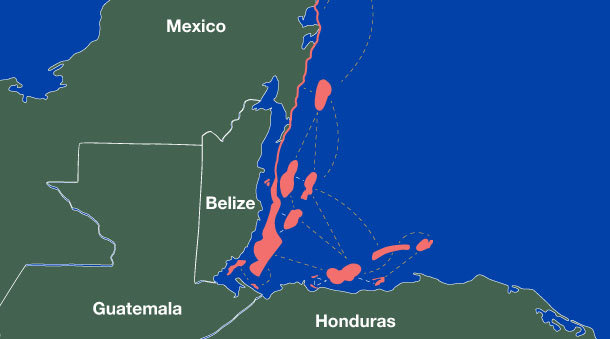By CORAL Staff | CORAL Staff
It’s a clear fall night in the Caribbean. High in the sky is a full moon and the water is perfectly warm. Once a year, the conclusion of a full moon and warmer water temperatures sets the mood for an incredible event – coral spawning.
On this night, coral polyps release bundles of eggs and sperm into the water forming billions of free-floating larvae. These baby corals are starting unique journeys, following ocean currents for a few days or weeks before settling down on new reefs. Some corals stay close to home, while others travel for many kilometers to distant reefs. If they are lucky, they’ll find a safe place to call home, and will flourish and produce offspring of their own.
This connection of reefs at the local scale is an important attribute in an Adaptive Reefscape, which are diverse, connected and large networks of healthy reefs designed to help corals adapt to climate change.
Baby corals are looking for a reef that has conditions that match their individual needs. With a changing climate and local human-threats, many reefs are getting warmer, more polluted and generally harder on baby corals. But some baby corals are special because they inherited an ability to thrive where others can’t. When reefs are well connected, these special corals can grow and spread from one reef to the next, building the reefs of tomorrow.
We can help corals by creating safe environments, such as Marine Protected Areas or Locally Managed Marine Areas, which provide the best conditions for baby corals such as clear water and healthy fish populations. By creating a network of healthy, connected and diverse reefs, we can ensure that baby corals can always find a good place to thrive, grow and reproduce through to the next generation.
Learn more about Adaptive Reefscapes at coral.org/adapt.
Project reports on GlobalGiving are posted directly to globalgiving.org by Project Leaders as they are completed, generally every 3-4 months. To protect the integrity of these documents, GlobalGiving does not alter them; therefore you may find some language or formatting issues.
If you donate to this project or have donated to this project, you can receive an email when this project posts a report. You can also subscribe for reports without donating.
Support this important cause by creating a personalized fundraising page.
Start a Fundraiser
